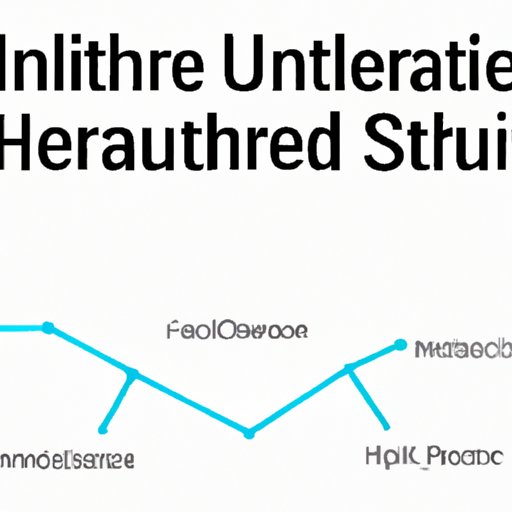
Who Owns United Healthcare? Understanding the Complex Network of Ownership
United Healthcare is one of the largest healthcare companies in the United States, serving millions of people across the country. However, despite its size and influence, many people are unaware of who exactly owns United Healthcare. In this article, we will explore the complex network of ownership that surrounds United Healthcare, and examine the implications that this ownership structure has for consumers.
The History of Ownership of United Healthcare
Before we dive into the current ownership structure of United Healthcare, let’s take a brief look at the establishment of the company. United Healthcare was founded in 1977 as UnitedHealth Group Incorporated. Over the next few decades, the company grew rapidly through acquisitions and mergers, absorbing a number of smaller healthcare providers and insurance companies.
As United Healthcare grew, so too did its ownership structure. Today, United Healthcare is a complex network of different companies and entities, all owned by various stakeholders. Understanding this ownership structure requires a closer look at the relationships between these different entities.
Understanding the Complex Network of United Healthcare Ownership
At the highest level of United Healthcare’s ownership structure is UnitedHealth Group Incorporated, the parent company that oversees all operations. However, beneath this parent company are a number of different sub-companies that operate in different areas of the healthcare industry.
These sub-companies include UnitedHealthcare Insurance Company, OptumRx, and OptumInsight, among others. Each of these entities operates in a different area of healthcare, from insurance and pharmacy services to data analysis and consulting.
One important thing to note is that while these sub-companies are all ultimately owned by UnitedHealth Group Incorporated, they operate largely independently of one another. This means that decisions made by one sub-company may not necessarily reflect the priorities or goals of United Healthcare as a whole.
From a consumer perspective, this ownership structure can be confusing and difficult to navigate. In some cases, consumers may not even be aware of which specific entity they are interacting with when they access United Healthcare services.
Who Really Owns United Healthcare?
So, who actually owns United Healthcare? The answer is not as straightforward as you might think. United Healthcare is a publicly traded company, which means that it is owned by a wide range of shareholders and investors.
At the time of writing, the largest shareholders in United Healthcare are Vanguard Group Inc., BlackRock Inc., and State Street Corporation. These three companies together own a significant portion of United Healthcare’s shares and have significant influence over the company’s decision-making process.
It’s also worth noting that, like many publicly traded companies, United Healthcare has a board of directors that oversees its operations. The members of this board are elected by shareholders, and their decisions can have a significant impact on the direction of the company.
So, while United Healthcare is ultimately owned by its shareholders, the individuals and entities who hold those shares are not necessarily the same as the people who run the company.
Taking a Closer Look at the Shareholders and Investors of United Healthcare
Given the significant influence that shareholders and investors have over United Healthcare, it’s worth taking a closer look at these stakeholders. One key issue to consider is the potential conflicts of interest that could arise from these stakeholders’ involvement in the company.
For example, both Vanguard Group Inc. and BlackRock Inc. have significant holdings in a number of healthcare-related companies, meaning that their decisions regarding United Healthcare could potentially impact other companies they hold shares in. Similarly, members of United Healthcare’s board of directors may have ties to other companies in the healthcare industry, which could also influence their decision-making.
From a consumer perspective, these potential conflicts of interest can be concerning. Consumers want to be sure that decisions made by United Healthcare are in their best interests, rather than being swayed by outside influences.
Exploring the Growth and Expansion of United Healthcare through Changes in Ownership
As mentioned earlier, United Healthcare has grown rapidly over the past few decades through a series of acquisitions and mergers. Each of these changes in ownership has had an impact on the company’s operations and strategies.
For example, the acquisition of Ingenix (now known as OptumInsight) in 2004 gave United Healthcare a significant presence in the data analytics and consulting space. Similarly, the acquisition of Catamaran Corporation in 2015 helped to expand United Healthcare’s pharmacy benefit management capabilities.
From a consumer perspective, these changes in ownership can have both positive and negative impacts. On the one hand, they allow United Healthcare to offer a wider range of services and capabilities. On the other hand, they can also lead to a lack of transparency and clarity around United Healthcare’s ownership structure and decision-making process.
Conclusion
Overall, the ownership structure of United Healthcare is complex and difficult to navigate. While the company is ultimately owned by its shareholders, the different sub-companies and individuals involved in its decision-making process can make it difficult for consumers to understand who actually controls the company.
As consumers, it’s important to be aware of these challenges and to be proactive in advocating for our own health and well-being. By staying informed and asking questions about United Healthcare’s ownership and decision-making processes, we can help to ensure that our healthcare is truly serving our needs.




